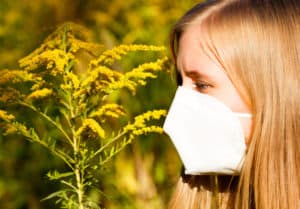
Common Allergens in Florida During the Winter
Many people associate allergies with springtime, but there are many common allergens that strike in Florida during the winter. To avoid getting blindsided by allergies during the coldest months of the year, keep reading to learn about the most common winter allergens in the Sunshine State.
Dust
Since people generally spend more time inside during the winter, indoor allergens get their time to shine. Dust is one of the most prevalent indoor allergens. When your heater turns on for the season, it often kicks up dust that’s been sitting in your HVAC system all summer long. As a result, dust can circulate throughout your home and cause allergy symptoms.
Changing your HVAC filter before turning your heater on for the season is a good strategy for minimizing dust allergies. The filter should be cleaned or changed every month or so to prevent allergy symptoms. Dusting the surfaces in your home regularly will also help prevent allergy symptoms from dust.
Mold
Mold is another indoor allergen that can cause problems during the winter. Areas of your home that are frequently humid, such as the bathroom and kitchen, can encourage mold to grow. Many people have allergy symptoms from mold exposure, including a sore throat, runny nose, watery eyes, dry cough, and skin rashes.
Keep an eye out for mold growth in your home, especially on ceilings and walls in the bathroom. If any mold does develop, remove it with a combination of bleach and water, making sure to wear a mask and gloves as you clean. Additionally, ensuring that your kitchen and bathroom are properly ventilated can help prevent mold from growing.
Ragweed
Ragweed is an outdoor allergen that thrives in the winter in Florida. Ragweed is a plant that’s related to the daisy and produces high volumes of pollen, leading to allergy symptoms for many people. The symptoms of a ragweed allergy are similar to that of other pollen allergies and include sneezing, an itchy throat, headache, eye irritation, nasal congestion, and a runny nose.
To prevent ragweed allergies this winter, limit time outdoors when the pollen count is high. Also, keep windows closed, especially on windy days, to keep pollen from blowing into your home and settling on surfaces.
If you’re experiencing allergy symptoms this winter, schedule an appointment at Kratz Allergy & Asthma. Our experienced allergists can determine the cause of your symptoms and develop a treatment plan to help you finally achieve relief.
